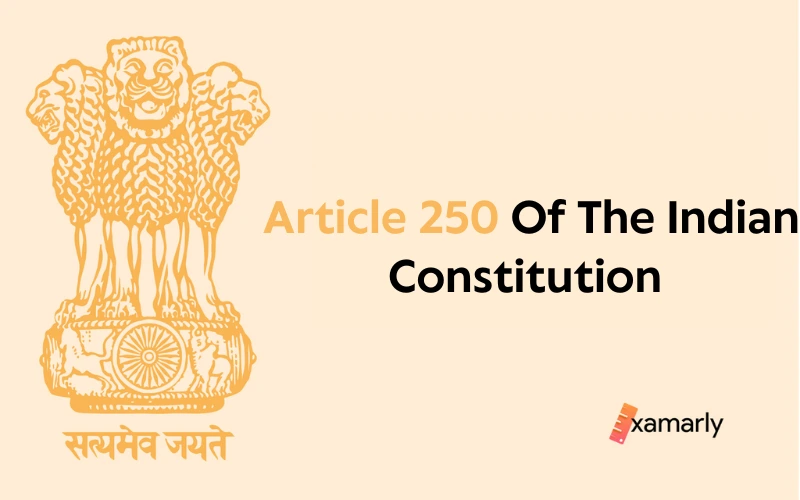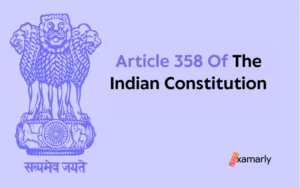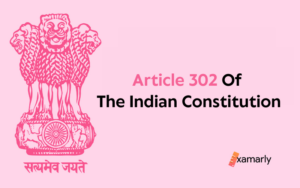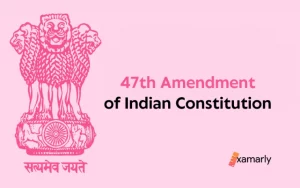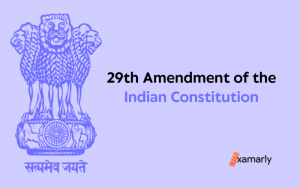An Overview
Article 250 of the Indian Constitution is a provision that grants special powers of legislation to the Parliament, for issues mentioned in the State List during a Proclamation of Emergency.
A Proclamation of Emergency is a declaration made by the President of India in response to a grave situation that threatens the security or financial stability of the country. During a Proclamation of Emergency, the Parliament has the authority to make laws on any matter that is a part of the State List. This list is a collection of subjects over which fall under the purview of the Legislature of a State, which has the power to make laws related to these subjects.
In this blog, we will explore the purpose and provisions of Article 250 and how it equips the Parliament to introduce new laws to address the crises facing the nation.
- An Overview
- What Does Article 250 Of The Indian Constitution Deal With?
- Clause (1) Of Article 250 Of The Indian Constitution: Explained
- Clause (2) Of Article 250 Of The Indian Constitution: Explained
- Summing Up
- FAQs Related To Article 250 Of The Indian Constitution
- What Is Article 250 Of The Indian Constitution?
- When Can Article 250 Of The Indian Constitution Be Invoked?
- What Powers Does Article 250 Grant To The Parliament?
- How Long Does The Power Granted By Article 250 Of The Indian Constitution Last?
- Can The State Governments Override Laws Made By The Parliament Under Article 250 Of The Indian Constitution?
- What Is The Difference Between a State List, A Union List , And A Concurrent List?
What Does Article 250 Of The Indian Constitution Deal With?
Article 250 of the Indian Constitution deals with the granting of legislation powers that are accorded to the Parliament to address any matter that is included in the State List, if a Proclamation of Emergency is in effect.
A State List is a list of subjects over which the Legislatures of States have the exclusive power to make laws.
Article 250 is composed of only two clauses, namely- clause (1) and clause (2). We will now have a look at both the clauses of this article one by one. Analysing the clauses of this article will help us understand the purpose of the article inn a clear and concise way.
Clause (1) Of Article 250 Of The Indian Constitution: Explained
(1) Notwithstanding anything in this Chapter, Parliament shall, while a Proclamation of Emergency is in operation, have power to make laws for the whole or any part of the territory of India with respect to [goods and services tax provided under article 246A or] any of the matters enumerated in the State List.
The first clause of Article 250 states that the Parliament shall be bestowed with the power to frame laws for the entire nation or any portion of the territory of India. The making of these laws will be with regard to the taxes charged for rendering of goods and services provided under article 246A of the Indian Constitution or for the purpose of addressing any of the issues that find a mention in the State List.
However, a point to be noted here is that this provision is valid only while a Proclamation of Emergency is in effect. Also, nothing mentioned in the provisions of the articles of this Chapter shall have an effect on this specific clause of Article 250 of the Indian Constitution.
In other words, during a Proclamation of Emergency, the Parliament, which is the legislative branch of the government of India has the authority to make laws for the entire country or any part of it regarding the goods and services tax which is a tax levied on the supply of goods and services, or any of the matters that are mentioned in the State List. The State List is a part of the Constitution of India that enumerates the subjects over which the Legislatures of States have exclusive power to make laws.
This means that while a Proclamation of Emergency is in effect, Parliament has the power to make laws on a wide range of subjects that are typically within the jurisdiction of the state governments. This power is granted despite any provisions in the Chapter, presumably the Chapter of the Constitution or other legal document containing this paragraph that may otherwise limit the ability of the Parliament to make laws on these subjects.
Clause (2) Of Article 250 Of The Indian Constitution: Explained
(2) A law made by Parliament which Parliament would not but for the issue of a Proclamation of Emergency have been competent to make shall, to the extent of the incompetency, cease to have effect on the expiration of a period of six months after the Proclamation has ceased to operate, except as respects things done or omitted to be done before the expiration of the said period.
Clause (2) of Article 250 talks about a law that was made by the Parliament during a Proclamation of Emergency, which is a declaration made by the government in response to a crisis situation that threatens the nation. The law is only effective for a period of six months after the Proclamation of Emergency has ended, unless it has already been implemented or actions have been taken based on the law before the expiration of this six-month period.
After the six months have passed, the law will no longer be in effect to the extent that it was only made possible because of the Proclamation of Emergency. This means that if the law was only able to be made because of the exceptional circumstances created by the Proclamation of Emergency, it will no longer be valid once the Proclamation has ended and the six-month period has passed.
You Might Also Like:
| Article 248 Of The Indian Constitution | Article 247 Of The Indian Constitution |
| Article 251 Of The Indian Constitution | Article 252 Of The Indian Constitution |
Summing Up
To wrap up all that we learnt through the provisions of this article, the major findings have been listed below.
- Article 250 of the Indian Constitution grants special powers to the Parliament. This power is used to make laws on any matter in the State List while a Proclamation of Emergency is in process.
- This includes the power to legislate on matters that are normally within the jurisdiction of the Legislature of a State.
- A law made by the Parliament during a Proclamation of Emergency that would not have been possible without the Proclamation will cease to have effect six months after the Proclamation ends.
- Such a law will continue to remain valid if it has already been implemented or actions have been taken based on the law before the expiration of this six-month period.
FAQs Related To Article 250 Of The Indian Constitution
What Is Article 250 Of The Indian Constitution?
Article 250 of the Indian Constitution gives the Parliament the ability to make laws on subjects listed in the State List, which are typically within the jurisdiction of the Legislatures of States, during a Proclamation of Emergency. This provision allows the Parliament to address crisis situations by legislating on a wide range of subjects in order to address the emergency.
The purpose of this provision is to allow the Central government to take swift and decisive action to address the crisis situation that led to the Proclamation of Emergency. This power is granted to the Parliament despite any provisions in the Constitution or other laws that may normally limit the ability of the Parliament to make laws on these subjects.
When Can Article 250 Of The Indian Constitution Be Invoked?
Article 250 of the Indian Constitution can be invoked when a Proclamation of Emergency is in operation. A Proclamation of Emergency is a declaration made by the President of India in response to a grave situation that threatens the security or financial stability of the country.
What Powers Does Article 250 Grant To The Parliament?
Article 250 of the Indian Constitution grants the Parliament the power to make laws on some specific matters. These are the matters that are included in the State List during a Proclamation of Emergency. This includes the power to legislate on matters that are typically within the jurisdiction of the Legislature of a State.
How Long Does The Power Granted By Article 250 Of The Indian Constitution Last?
The power granted by Article 250 of the Indian Constitution lasts for the duration of the Proclamation of Emergency. Once the Proclamation is revoked, the special powers granted to the Parliament under Article 250 will no longer be in effect.
Can The State Governments Override Laws Made By The Parliament Under Article 250 Of The Indian Constitution?
No, the State governments do not have the power to override laws made by the Parliament under Article 250 of the Indian Constitution. These laws have the same legal force as any other laws made by the Parliament and are binding on the States.
What Is The Difference Between a State List, A Union List , And A Concurrent List?
The State List is a list of subjects over which the State governments have the exclusive power to make laws. These are issues that are of particular concern to the individual states, such as police, public health, and agriculture.
The Union List is a list of subjects over which the Central government, or the Parliament, has exclusive power to make laws. These are national level issues that are of concern to the entire country, such as defence, foreign affairs, and currency.
The Concurrent list is a list of subjects over which both the Central government and the State governments have the power to make laws. Examples of subjects on the Concurrent List include education, marriage, and criminal law. When a law is made by Parliament on a subject in the Concurrent List, it takes precedence over any state laws on the same subject.


